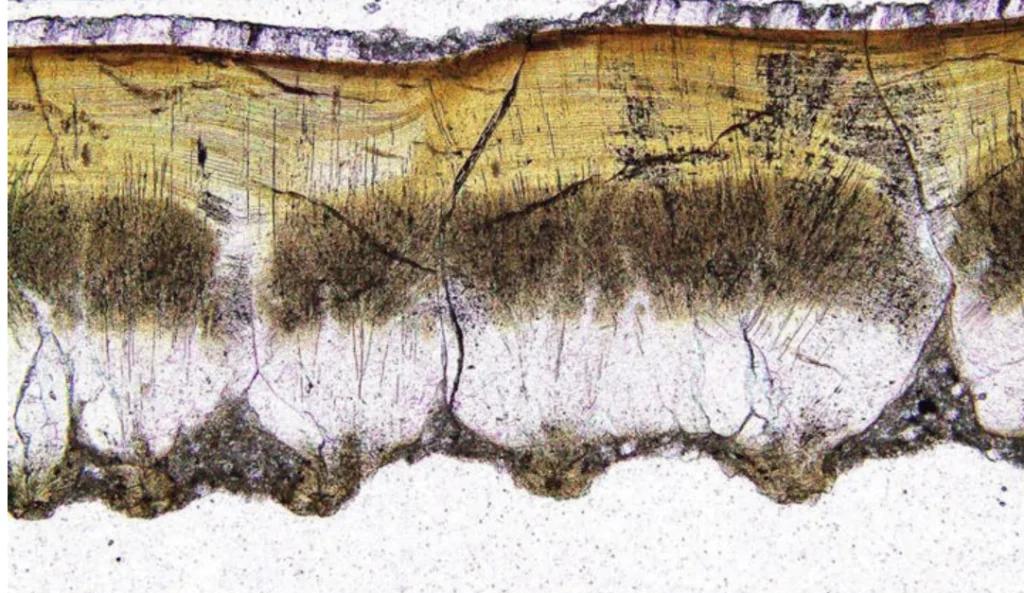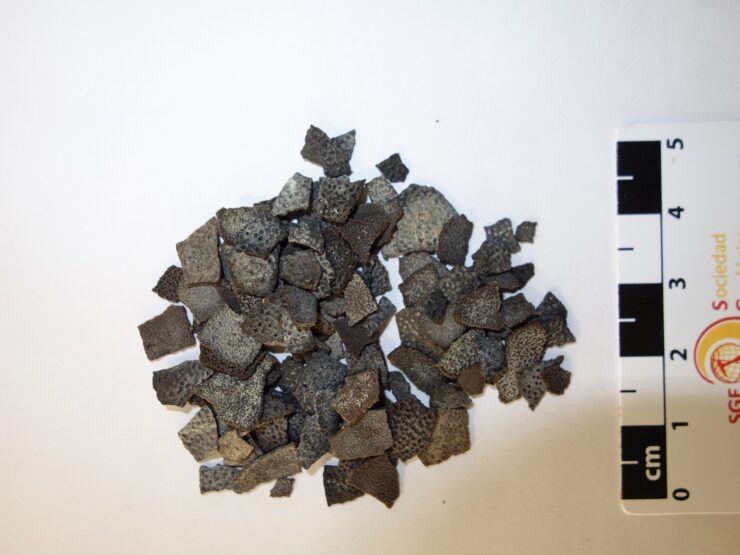Paleontologists have uncovered a new crocodile species that lived with the last dinosaurs and laid the thickest eggs ever discovered.
Paleontologists from the University of Zaragoza in Spain, along with colleagues from NOVA University Lisbon and the Catalan Institute of Human Paleoecology and Social Evolution, discovered eggshells from a new species of crocodile in the Ribagorza district of Huesca province in northeastern Spain.
The study was published on July 21 in the peer-reviewed academic journal Historical Biology, with the institution only announcing the discovery on Wednesday.
In their study, the researchers describe how they found more than 300 pieces of eggshell close to Biascas de Obarra in the Huesca municipality of Beranuy.
According to a statement from the University of Zaragoza that Zenger News acquired on Wednesday: “The fragments found correspond to the thickest crocodile shells that have been found in the fossil record worldwide. Its discovery increases the paleontological wealth of the Ribagorza region and reaffirms its importance worldwide to study the end of the Cretaceous extinction.”



According to the researcher, the eggshells date from the Upper Cretaceous period and “fragments were part of the eggs laid by crocodiles that lived with the last Iberian dinosaurs at the end of the Cretaceous” said.
They also stated that appear in the sedimentary rocks of the Tremp Formation, which outcrops in this sector of the Pyrenees. The most recent dates of these outcrops place these rocks within the last 250,000 years of the Cretaceous, very close in time to the Cretaceous/Paleogene boundary, when there was a meteorite impact against planet Earth and the extinction of the dinosaurs.
According to them, the new species is known as Pachykrokolithus excavatum. The specialists compared the pieces to “other crocodile egg shells, both current and fossil from various places of the world, such as Portugal or the United States” in the Historical Biology article.
Also, according to Newsweek‘s report, the “thickest crocodile eggshells that exist in the fossil record,” they claimed, are these new eggshells, which is how they were able to confirm their claim.
Cover photo: Undated image of shell fragments from Pachykrokolithus excavatum. They were discovered in La Ribagorza, Spain, and were discovered between 250,000 and 80,000 years ago, just before the dinosaurs became extinct. Manuel Perez Pueyo/Zenger
